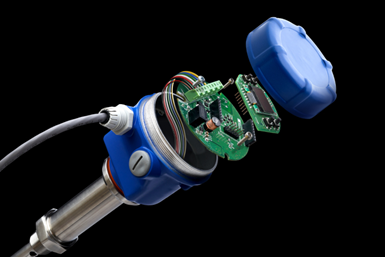Whitman Controls' Dual Switch and Sensor Level Transmitter is Fully Configurable
Whitman says the new L96 Series Level Transmitters are ideal in water systems, oil and petroleum tanks, chemical processing, refrigeration systems and other OEM applications where precise level measurement and real-time data communication are critical.

Whitman Controls, a designer and manufacturer of custom sensors and controls, has launched the L96 Series Level Transmitter, a capacitive level transmitter with dual switch and sensor capabilities that is fully configurable by the end user. The company claims the transmitter is the first of its kind.
The L96 Series Capacitance Level Transmitters reportedly provide highly accurate level measurement across a range of liquids and in industries spanning oil and gas, wastewater, industrial manufacturing, fluid processing and food and beverage. Whitman says the devices are ideal in water systems, oil and petroleum tanks, chemical processing, refrigeration systems and other OEM applications where precise level measurement and real-time data communication are critical.
The transmitters come standard with an OLED display and Modbus RS485 protocol, and enable the end user to select from a variety of analog outputs in the field ranging from 0-5 V, 1-5 V, 0-10 V and 4-20 mA. Furthermore, the user can simultaneously configure a single pole, single throw (SPST) latching relay for switching functionality at any desired setpoint on the measurement range. In addition, the transmitters are reportedly able to operate in temperatures up to 392°F and in pressure environments up to 500 psig.
“The L96 is a highly versatile device affording users numerous customizable options at production combined with full-field adjustability, delivering ultimate operating flexibility across a wide range of applications,” says William Brame, president of Whitman Controls. “We are actively testing our L96 units in numerous applications and are excited to see further adoption in other industries.”
Related Content
-
Mastering Uniformity Through Surface Prep Standardization
By standardizing surface preparation processes and adopting surface energy measurement, a company can achieve uniformity, quality and cost reduction.
-
Titrations: To Automate or Not to Automate?
What considerations should you keep in mind for automatic titrations? Conor McAnespie of Hanna Instruments discusses the benefits of auto titrators.
-
5 Things to Know About XRF Calibration
The proactive approach of validating measurement performance and calibrating only as often as necessary improves quality, consistency and reduces costs.













